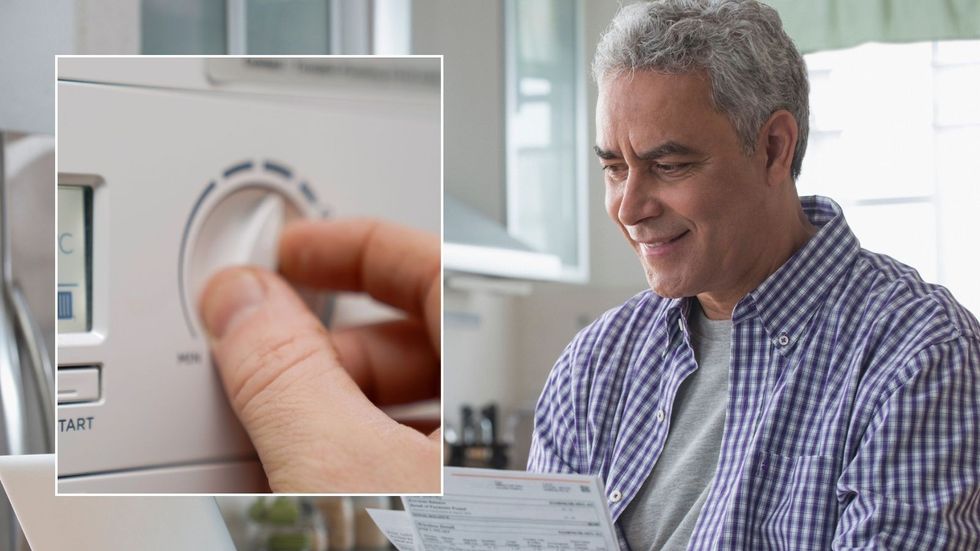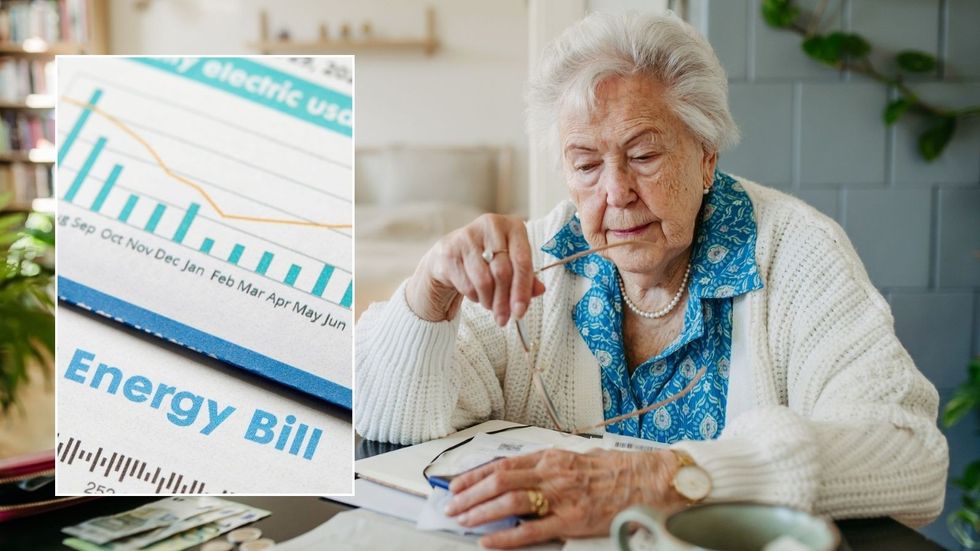Patrick O'Donnell
Guest Reporter
Labour has cut the so-called "boiler tax" as part of reforms to the the Clean Heat Market Mechanism (CHMM) in a move that is being praised by energy firms and trade associations.
The Government is scaling back penalties, imposed on boiler manufacturers who do not meet heat pump targets, that could have led to increased costs for consumers buying new boilers. Heat pumps are environmentally-friendly devices being rolled out by the Government to bring down energy bills long-term.
According to the Energy and Utilities Alliance (EUA), fines that were estimated over the two years to cost the consumer £682million have now been reduced to an estimated £28m.
The reformed CHMM will now come into effect from April 1, 2025, giving manufacturers additional time to develop their supply chains.
The changes aim to make heat pumps a more attractive choice for households whilst avoiding penalties for those purchasing new gas boilers.
As part of these reforms, Labour has promised support for every heat pump installation required under the mechanism during 2025 to 2026.
Under the previous Government's plans, boiler manufacturers would have been required to match or swap four per cent of their boiler sales with heat pumps starting from April.
This scheme aimed to phase out gas boilers from homes, with a target of installing 600,000 environmentally-friendly heat pumps annually by 2028.
Manufacturers who failed to meet these targets faced substantial penalties of £3,000 for every installation they fell short of.
Do you have a money story you’d like to share? Get in touch by emailing [email protected].

In anticipation of these penalties, boiler manufacturers had already begun increasing their prices to offset potential fines. Industry experts warned that these price hikes would result in an annual increase of £120 for consumers, a cost that became known as the 'boiler tax' within the energy sector.
The price increases were implemented as manufacturers prepared for the financial impact of potentially missing the government's heat pump installation targets.
Mike Foster, chief executive of EUA, welcomed the changes, noting their consistent opposition to the original scheme due to its impact on consumers.
"We haven't been the most popular kids in the block for speaking out, but we have helped save three million households around £650million," Foster said.
He praised the approach of new Minister Miatta Fahnbulleh, stating: "She has spent time understanding the implications of the scheme she inherited from the previous government. She has displayed an intellectual rigor to this that her predecessor could not."
The minister also outlined changes to the Warm Home Plan which will potentially help 300,000 households upgrade their home to more energy-efficient technologies and save families £100 with making a switch to a heat pump.
Homeowners in England and Wales will receive a £7,500 heat pump grant through the Boiler Upgrade Scheme, which had the highest number of applications ever in October according to energy regulator Ofgem.
The Government has also announced a significant investment in the UK's heat pump industry, with over £5m being awarded to Ideal Heating through the Heat Pump Investment Accelerator competition. The investment is expected to boost the UK's energy security and create hundreds of low-carbon jobs.
LATEST DEVELOPMENTS:

Fahnbulleh said: "The idea at the heart of our Warm Homes Plan is a simple one – all families deserve the security of a home they can afford to heat.
"But for too long, that has been out of reach for far too many people who have been left with draughty homes and sky-high bills.
"That is why we are taking immediate action today to make cleaner heating available to more households
"This follows our plan to lift over one million households out of fuel poverty by consulting on boosting minimum energy efficiency standards for all renters by 2030, delivering warmer homes and cheaper bills."
Find Out More...
The Government is scaling back penalties, imposed on boiler manufacturers who do not meet heat pump targets, that could have led to increased costs for consumers buying new boilers. Heat pumps are environmentally-friendly devices being rolled out by the Government to bring down energy bills long-term.
According to the Energy and Utilities Alliance (EUA), fines that were estimated over the two years to cost the consumer £682million have now been reduced to an estimated £28m.
The reformed CHMM will now come into effect from April 1, 2025, giving manufacturers additional time to develop their supply chains.
The changes aim to make heat pumps a more attractive choice for households whilst avoiding penalties for those purchasing new gas boilers.
As part of these reforms, Labour has promised support for every heat pump installation required under the mechanism during 2025 to 2026.
Under the previous Government's plans, boiler manufacturers would have been required to match or swap four per cent of their boiler sales with heat pumps starting from April.
This scheme aimed to phase out gas boilers from homes, with a target of installing 600,000 environmentally-friendly heat pumps annually by 2028.
Manufacturers who failed to meet these targets faced substantial penalties of £3,000 for every installation they fell short of.
Do you have a money story you’d like to share? Get in touch by emailing [email protected].

In anticipation of these penalties, boiler manufacturers had already begun increasing their prices to offset potential fines. Industry experts warned that these price hikes would result in an annual increase of £120 for consumers, a cost that became known as the 'boiler tax' within the energy sector.
The price increases were implemented as manufacturers prepared for the financial impact of potentially missing the government's heat pump installation targets.
Mike Foster, chief executive of EUA, welcomed the changes, noting their consistent opposition to the original scheme due to its impact on consumers.
"We haven't been the most popular kids in the block for speaking out, but we have helped save three million households around £650million," Foster said.
He praised the approach of new Minister Miatta Fahnbulleh, stating: "She has spent time understanding the implications of the scheme she inherited from the previous government. She has displayed an intellectual rigor to this that her predecessor could not."
The minister also outlined changes to the Warm Home Plan which will potentially help 300,000 households upgrade their home to more energy-efficient technologies and save families £100 with making a switch to a heat pump.
Homeowners in England and Wales will receive a £7,500 heat pump grant through the Boiler Upgrade Scheme, which had the highest number of applications ever in October according to energy regulator Ofgem.
The Government has also announced a significant investment in the UK's heat pump industry, with over £5m being awarded to Ideal Heating through the Heat Pump Investment Accelerator competition. The investment is expected to boost the UK's energy security and create hundreds of low-carbon jobs.
LATEST DEVELOPMENTS:
- British Gas, OVO and Octopus Energy to spend £500m on winter bills support
- Labour urged to 'put a stop' to Winter Fuel Payment axe as 100,000 pensioners at risk
- 250,000 energy customers to get refund after error in provider system

Fahnbulleh said: "The idea at the heart of our Warm Homes Plan is a simple one – all families deserve the security of a home they can afford to heat.
"But for too long, that has been out of reach for far too many people who have been left with draughty homes and sky-high bills.
"That is why we are taking immediate action today to make cleaner heating available to more households
"This follows our plan to lift over one million households out of fuel poverty by consulting on boosting minimum energy efficiency standards for all renters by 2030, delivering warmer homes and cheaper bills."
Find Out More...
